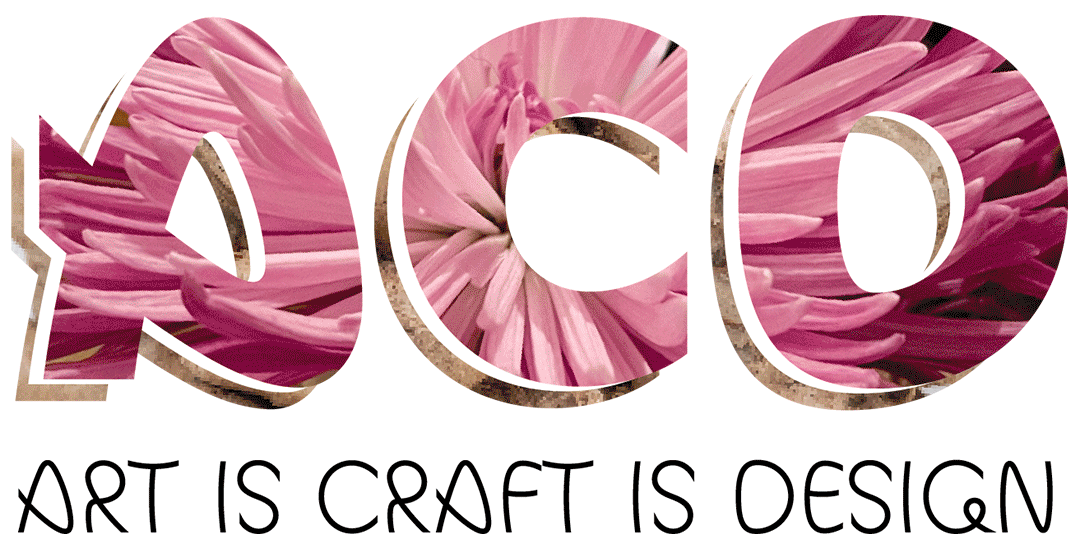- Announcing: The Land Loves Us
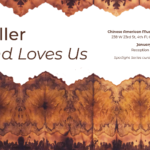 I am so proud to announce that my chromatography work is currently on display at the Chinese American Museum of Chicago. The show, Mari Miller: The Land Loves Us, runs from January 7th-February 18th, 2024 as part of the museum’s Spotlight Series of Chinese American artists, curated by Larry Lee of Molar Productions. Radical love… Read more: Announcing: The Land Loves Us
I am so proud to announce that my chromatography work is currently on display at the Chinese American Museum of Chicago. The show, Mari Miller: The Land Loves Us, runs from January 7th-February 18th, 2024 as part of the museum’s Spotlight Series of Chinese American artists, curated by Larry Lee of Molar Productions. Radical love… Read more: Announcing: The Land Loves Us - Intro to Sewn Book Binding Part 1: Pothi Books
 Book binding is an easy entry to making. And while there are specialized book binding materials, this lesson doesn’t require any of them. In fact, if you wanted, you could pick up a pad of drawing paper and yarn at a dollar store, spending only a couple of bucks on enough materials to make a dozen books.
Book binding is an easy entry to making. And while there are specialized book binding materials, this lesson doesn’t require any of them. In fact, if you wanted, you could pick up a pad of drawing paper and yarn at a dollar store, spending only a couple of bucks on enough materials to make a dozen books. - The Power of DIY
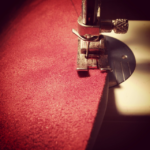 There is a lot of power in DIY. One of the essential tenets of marxism is that workers are alienated from their labor. I think an essential part of our current crisis with capitalism is that this alienation goes beyond jobs. It extends to all facets of our lives. We are alienated from our food.… Read more: The Power of DIY
There is a lot of power in DIY. One of the essential tenets of marxism is that workers are alienated from their labor. I think an essential part of our current crisis with capitalism is that this alienation goes beyond jobs. It extends to all facets of our lives. We are alienated from our food.… Read more: The Power of DIY - Love, Land, and Chromatography
 Last year, I learned how to do chromatography. You may be familiar with science class experiments where you apply a ground up plant or a marker to a piece of filter paper and watch as the colors in your sample separate out as capillary action carries them across the paper. In photography, chromatography is based… Read more: Love, Land, and Chromatography
Last year, I learned how to do chromatography. You may be familiar with science class experiments where you apply a ground up plant or a marker to a piece of filter paper and watch as the colors in your sample separate out as capillary action carries them across the paper. In photography, chromatography is based… Read more: Love, Land, and Chromatography - On Art, Craft, and Design as Separate Disciplines
 The distinctions between art, craft, and design are not universal truths that separate us from supposed lesser beings. They are not even truths shared by all human cultures throughout time. They are relatively recent inventions spread to reinforce European supremacy.
The distinctions between art, craft, and design are not universal truths that separate us from supposed lesser beings. They are not even truths shared by all human cultures throughout time. They are relatively recent inventions spread to reinforce European supremacy. - Criteria for Planet-Centric Design, MDes Thesis pt 4
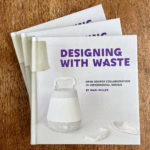 The formal written part of thesis projects at the UIC School of Design is a thesis documentation book. See excerpts from my documentation book, including criteria for planet-centric design, as well as my full bibliography below. This is the fourth part of my Master of Design thesis project. If you have not already, go see… Read more: Criteria for Planet-Centric Design, MDes Thesis pt 4
The formal written part of thesis projects at the UIC School of Design is a thesis documentation book. See excerpts from my documentation book, including criteria for planet-centric design, as well as my full bibliography below. This is the fourth part of my Master of Design thesis project. If you have not already, go see… Read more: Criteria for Planet-Centric Design, MDes Thesis pt 4 - Designing With Waste, MDes Thesis pt 3
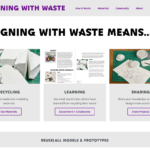 DesigningWithWaste.com grew out of frustrations with seeing awesome experimental design projects never go beyond a classroom because of a lack of infrastructure. Making matters worse, students often have to reinvent the wheel when they have an experimental design project since the industrial design community lacks a collaborative hub where people can improve upon each others’… Read more: Designing With Waste, MDes Thesis pt 3
DesigningWithWaste.com grew out of frustrations with seeing awesome experimental design projects never go beyond a classroom because of a lack of infrastructure. Making matters worse, students often have to reinvent the wheel when they have an experimental design project since the industrial design community lacks a collaborative hub where people can improve upon each others’… Read more: Designing With Waste, MDes Thesis pt 3 - Pasta Water for Designers, MDes Thesis pt 2
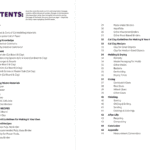 In order to help get the Cai Modeling Materials out into the world so that students and professionals can work more sustainably, I wrote a 48 page book that teaches people how to make the materials while encouraging them to experiment with the recipes.
In order to help get the Cai Modeling Materials out into the world so that students and professionals can work more sustainably, I wrote a 48 page book that teaches people how to make the materials while encouraging them to experiment with the recipes. - The Cai Modeling Materials, MDes Thesis pt. 1
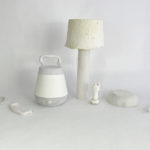 For my industrial design masters thesis at the University of Illinois at Chicago, I developed plastic-free modeling materials. Cai Board can serve as a replacement for extruded polystyrene foam. Cai Clay is an air-drying clay that is an alternative to plastic-based clays.
For my industrial design masters thesis at the University of Illinois at Chicago, I developed plastic-free modeling materials. Cai Board can serve as a replacement for extruded polystyrene foam. Cai Clay is an air-drying clay that is an alternative to plastic-based clays. - Textural Translations
 In some ways, we live in a more texturally diverse world than we did pre-Industrial Revolution, considering advances in technology combined with novel materials. But our textures tend to have a more shallow relief than they used to.
In some ways, we live in a more texturally diverse world than we did pre-Industrial Revolution, considering advances in technology combined with novel materials. But our textures tend to have a more shallow relief than they used to. - A Haptic Blank
 With the texture of water as inspiration, I created acoustic panels that not only absorb sound, but play sound when touched.
With the texture of water as inspiration, I created acoustic panels that not only absorb sound, but play sound when touched. - De-stigmatizing Opioid Addiction
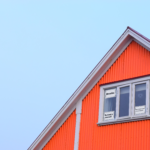 Between 1999 and 2019, the opioid epidemic killed nearly 841,000 people in the US. Opioids change the physical structure of the brain so that people with Opioid Use Disorder feel like they will die without opioids. People cannot just will themselves out of an addiction. How might we break stigmas so we can support people… Read more: De-stigmatizing Opioid Addiction
Between 1999 and 2019, the opioid epidemic killed nearly 841,000 people in the US. Opioids change the physical structure of the brain so that people with Opioid Use Disorder feel like they will die without opioids. People cannot just will themselves out of an addiction. How might we break stigmas so we can support people… Read more: De-stigmatizing Opioid Addiction
